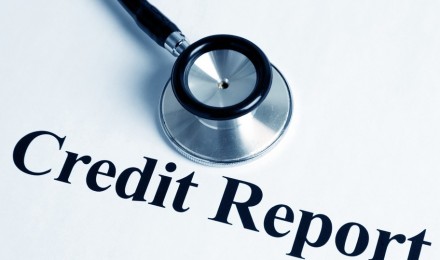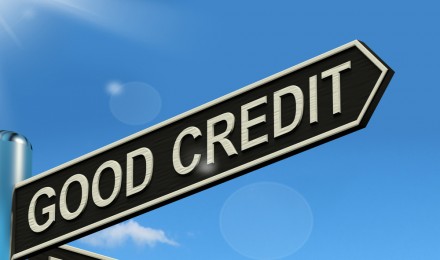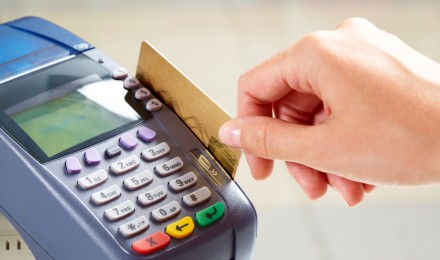By now, most people know you can buy almost anything on a credit card. Including a car.
The best way to buy one is with cash, of course. Not only are money issues lessened, but cash will often entice the best possible or lowest asking price.
Many car dealerships accept credit cards. So while it may surprise some, it is possible to use a card for at least a part of the entire purchase. However, dealerships have to pay a fee to the credit card issuers for accepting the payment. So that’s built into the cost.
The dealer will want any buyer to pay as much as possible in cash. So expect that attitude.
So the best advice for the buyer is to negotiate the best price first. Then, start mentioning the prospect of buying with a credit card. Dealers seeking sales might be more inclined to cut deals, of course. Maybe if nothing else, a buyer can persuade the dealer to forgo the credit card processing fees.
Credit card holders should not think, however, that they can now go out and charge a $42,000 BMW 18i convertible, though that is understandable.
Financiers ranging from financial institutions to lending agencies realize the distinct nature of credit card purchases. So there are limitations on their use.
Some experts bluntly say not to do it. As with any financial transaction, there are benefits AND reasons not to do it. Being aware of the conditions should help car buyers make up their own minds.
Major advantages include:
—Instant approval. No waiting for the bank or dealer to approve several pages of the application process.
—A credit card loan is unsecured. There’s no bank or institution to repossess it. So if payments are in default, what does a lender do? Advantage defaulting credit card holders.
—Many cards have the introductory offer of zero percent interest on purchases for a limited time. Using the credit card lets users put their money, say, and invest it in a bank certificate of deposit. That money that otherwise might have been spent on a car can turn a profit with the certificate.
—Payments are flexible. Long term financing involves fixed monthly installments. These are non-negotiable. Credit cards have monthly minimums but these can be adjusted when borrowers are short one month or another.
—The car payment under a credit card can be extended for a longer period of time then if a fixed loan is used. Of course, this also costs the borrower more money in interest, etc.
Disadvantages:
—See above. Stretched out payments take longer and cost more for the borrowers.
—Loans are limited by amounts. A figure of $3,000 is not unusual. Dealership financial arms know these are unsecured loans, so don’t expect to get them to give any buyer a fistful of money.
—Credit card ratings can wreck havoc on individual credit. Agencies determine credit card scores on how much money is owed. If cars raise that figure significantly, the debt will almost certainly lower a credit score.
So the best advice for a car buyer is to have that credit card ready but don’t forget the best bet is still cash, if at all possible.
By now, most people know you can buy almost anything on a credit card. Including a car.
The best way to buy one is with cash, of course. Not only are money issues lessened, but cash will often entice the best possible or lowest asking price.
Many car dealerships accept credit cards. So while it may surprise some, it is possible to use a card for at least a part of the entire purchase. However, dealerships have to pay a fee to the credit card issuers for accepting the payment. So that’s built into the cost.
The dealer will want any buyer to pay as much as possible in cash. So expect that attitude.
So the best advice for the buyer is to negotiate the best price first. Then, start mentioning the prospect of buying with a credit card. Dealers seeking sales might be more inclined to cut deals, of course. Maybe if nothing else, a buyer can persuade the dealer to forgo the credit card processing fees.
Credit card holders should not think, however, that they can now go out and charge a $42,000 BMW 18i convertible, though that is understandable.
Financiers ranging from financial institutions to lending agencies realize the distinct nature of credit card purchases. So there are limitations on their use.
Some experts bluntly say not to do it. As with any financial transaction, there are benefits AND reasons not to do it. Being aware of the conditions should help car buyers make up their own minds.
Major advantages include:
—Instant approval. No waiting for the bank or dealer to approve several pages of the application process.
—A credit card loan is unsecured. There’s no bank or institution to repossess it. So if payments are in default, what does a lender do? Advantage defaulting credit card holders.
—Many cards have the introductory offer of zero percent interest on purchases for a limited time. Using the credit card lets users put their money, say, and invest it in a bank certificate of deposit. That money that otherwise might have been spent on a car can turn a profit with the certificate.
—Payments are flexible. Long term financing involves fixed monthly installments. These are non-negotiable. Credit cards have monthly minimums but these can be adjusted when borrowers are short one month or another.
—The car payment under a credit card can be extended for a longer period of time then if a fixed loan is used. Of course, this also costs the borrower more money in interest, etc.
Disadvantages:
—See above. Stretched out payments take longer and cost more for the borrowers.
—Loans are limited by amounts. A figure of $3,000 is not unusual. Dealership financial arms know these are unsecured loans, so don’t expect to get them to give any buyer a fistful of money.
—Credit card ratings can wreck havoc on individual credit. Agencies determine credit card scores on how much money is owed. If cars raise that figure significantly, the debt will almost certainly lower a credit score.
So the best advice for a car buyer is to have that credit card ready but don’t forget the best bet is still cash, if at all possible.







